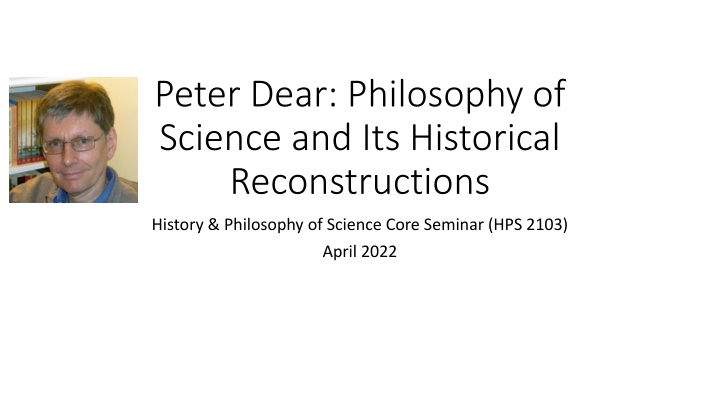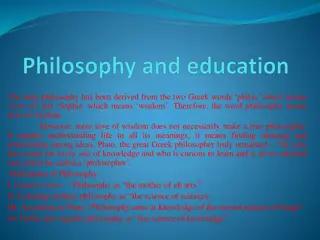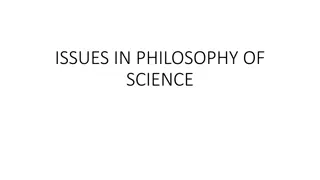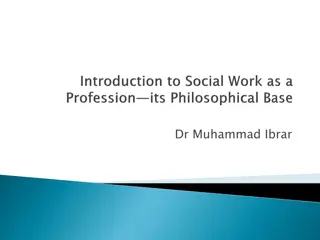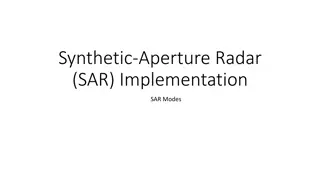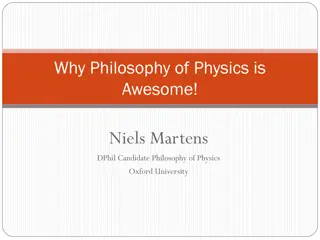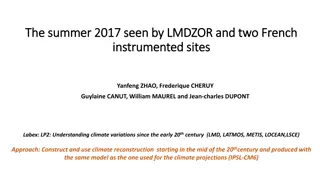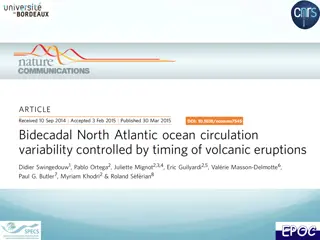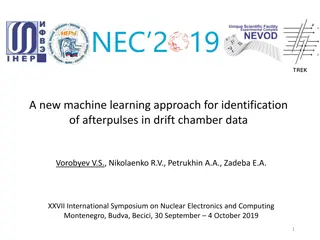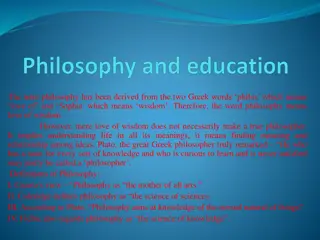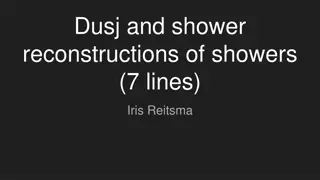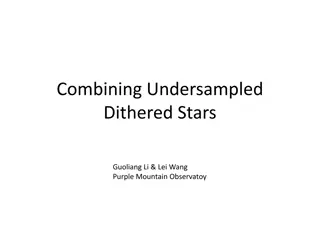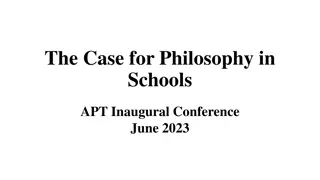Philosophy of Science and Historical Reconstructions
In this content, explore the main themes in philosophy of science, the historical evolution of HPS, and the shift towards historians within the field. Delve into the impact of SSK in the 1980s and the changing dynamics between philosophers and historians of science.
Download Presentation

Please find below an Image/Link to download the presentation.
The content on the website is provided AS IS for your information and personal use only. It may not be sold, licensed, or shared on other websites without obtaining consent from the author.If you encounter any issues during the download, it is possible that the publisher has removed the file from their server.
You are allowed to download the files provided on this website for personal or commercial use, subject to the condition that they are used lawfully. All files are the property of their respective owners.
The content on the website is provided AS IS for your information and personal use only. It may not be sold, licensed, or shared on other websites without obtaining consent from the author.
E N D
Presentation Transcript
Peter Dear: Philosophy of Science and Its Historical Reconstructions History & Philosophy of Science Core Seminar (HPS 2103) April 2022
The Main Theme The intention is not to tell people how to do the philosophy of science What HPS used to be about What HPS could still offer us
Historian vs. Philosophers of Science [Historians of science] wanted to trace how modern scientific ideas had come into being, where the philosopher of science wanted to know why those modern ideas were justified. (p. 68) Does this capture the main themes in philosophy of science?
A Change in Direction from HP PS By the 1950s philosophy of science was much more mature than was a professional history of science. The advent of HPS was spearheaded by philosophers of science By the 1960s HPS meant the Harvard Case Studies in Experimental Science, the International Encyclopedia of Unified Science, and the work of Norwood Russell Hanson and Thomas Kuhn and not the important historical studies of such as Richard Westfall or Charles Gillispie.
A Change in Direction to H HPS Contemporary philosophers of science who look to history do so by following the lead of historians. Many philosophers of science are now historians of the philosophy of science. There is a considerable associated coterie of philosophers who specialize in the history of early-modern philosophy The online discussion board HOPOS, History of Philosophy of Science, has been well established for many years For many philosophers of science, there is an intellectual priority to historical enterprises in HPS. Richardson s essay is called Scientific Philosophy as a Topic for History of Science, while Friedman s History and Philosophy of Science in a New Key, refers at the end to the relationship between the history of science and (the history of) the philosophy of science. Do these examples actually show that professional roles have reversed?
SSK Enters In the 1980s for many, the philosophy part in HPS was replaced by sociology of scientific knowledge (SSK) They found SSK liberating. You didn t have to explain why one theory was better than its predecessors, you gave a local, socially-rooted account of why particular groups of people at particular times preferred it. One of the great maxims of SSK held that one should not account for people s ideas by reference to other ideas; on this view, ideas don t causally generate new ideas. Instead, one was to seek socio-cultural explanations or understandings of why these sorts of people would have preferred those sorts of ideas. What about the times when we cannot account for an idea without referring to another? Would this approach work without considering which ideas were true or at the minimum conducive to empirical success? Why scientists considered certain ideas and not others as successful?
SSK and Relativism SSK was criticized harshly given relativism was proclaimed as a central badge of SSK. The attacks on SSK are more moderated now owing to the emphasis on making a distinction between methodological (or pragmatic) and epistemic relativism. Wasn t epistemic relativism a big deal in SSK then? Shouldn t the epistemic stand here affect the methodological matters?
Epistemography The core of science studies should be seen as epistemography the attempt to give an empirical account of knowledge-practices (what science or scientists are, or do, in some circumstance or other) Here the emphasis is on attempting to present a true account of some aspect of science. That attempt, rather than the possibility of ultimate success, is a crucial moral component of all work in science studies. Epistemography works against the impression that science studies sometimes appears to undermine the trustworthiness and truth- production capacity of the sciences themselves. An epistemographical approach still allows particular pieces of work in science studies to be vigorously challenged on grounds that the epistemography is wrong or fallacious, or that the arguments built with it are invalid in some way
Epistemography and Temporality A sense of temporality distinguishes Epistemography from typical structural form of SSK accounts. What virtual-present, case-study approaches tend to lose by discarding a true temporal dimension in their accounts is a certain form of meaning itself: meaning made by time. A commonplace of cultural-historical analysis is that the meanings of ideas or actions in any particular time and place are dependent on what counts as normal in that time and place; but the normal cannot really be understood in broadly structural terms, but only temporally or narratively
How History and Philosophy of Science are Integrated? Many examples from history of philosophy of science in this paper seem to work both as evidence and illustration. For instance, in support/illustration of the claim that many philosophers of science are now historians of the philosophy of science, the author mentions Daniel Garber and Roger Ariew s work in Cartesianism A liberal treatment of HPS (e.g., HOPOS as HPS)
Gems It could be structured and written more clearly David Bloor s point of drawing parallels between criticisms of his Strong Programme in the Sociology of Knowledge and those made in the mid- nineteenth century of Higher Criticism of the Bible and research on the history of church doctrines Giving sociological explanations for scientific beliefs is often seen as undermining them, because those beliefs will no longer owe their existence to the sanction of a transcendent Nature. Examining early-modern discussions of modern categories as a way of understanding what we ve unwittingly accepted as Moderns such as disciplined inner conviction as a mark of truth: e.g. Descartes and Pascal s account of reason as intuition and a human practice
